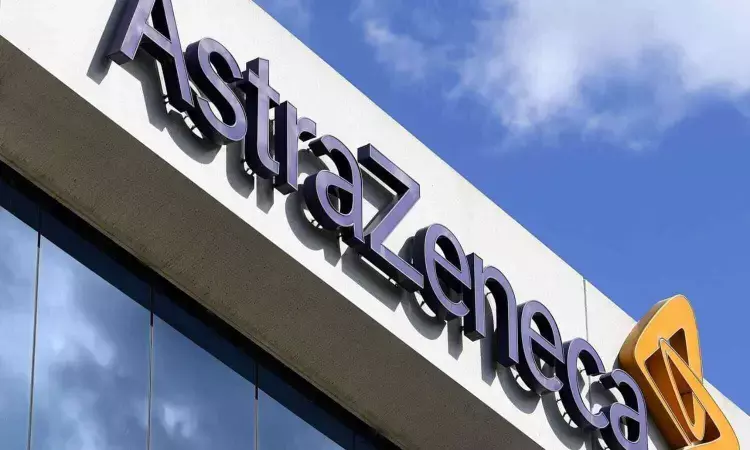- Home
- Medical news & Guidelines
- Anesthesiology
- Cardiology and CTVS
- Critical Care
- Dentistry
- Dermatology
- Diabetes and Endocrinology
- ENT
- Gastroenterology
- Medicine
- Nephrology
- Neurology
- Obstretics-Gynaecology
- Oncology
- Ophthalmology
- Orthopaedics
- Pediatrics-Neonatology
- Psychiatry
- Pulmonology
- Radiology
- Surgery
- Urology
- Laboratory Medicine
- Diet
- Nursing
- Paramedical
- Physiotherapy
- Health news
- Fact Check
- Bone Health Fact Check
- Brain Health Fact Check
- Cancer Related Fact Check
- Child Care Fact Check
- Dental and oral health fact check
- Diabetes and metabolic health fact check
- Diet and Nutrition Fact Check
- Eye and ENT Care Fact Check
- Fitness fact check
- Gut health fact check
- Heart health fact check
- Kidney health fact check
- Medical education fact check
- Men's health fact check
- Respiratory fact check
- Skin and hair care fact check
- Vaccine and Immunization fact check
- Women's health fact check
- AYUSH
- State News
- Andaman and Nicobar Islands
- Andhra Pradesh
- Arunachal Pradesh
- Assam
- Bihar
- Chandigarh
- Chattisgarh
- Dadra and Nagar Haveli
- Daman and Diu
- Delhi
- Goa
- Gujarat
- Haryana
- Himachal Pradesh
- Jammu & Kashmir
- Jharkhand
- Karnataka
- Kerala
- Ladakh
- Lakshadweep
- Madhya Pradesh
- Maharashtra
- Manipur
- Meghalaya
- Mizoram
- Nagaland
- Odisha
- Puducherry
- Punjab
- Rajasthan
- Sikkim
- Tamil Nadu
- Telangana
- Tripura
- Uttar Pradesh
- Uttrakhand
- West Bengal
- Medical Education
- Industry
USFDA nod to Voydeya as add on therapy to ravulizumab or eculizumab for extravascular haemolysis in adults with rare disease PNH: AstraZeneca

Cambridge: AstraZeneca has announced that Voydeya (danicopan) has been approved in the US as add-on therapy to ravulizumab or eculizumab for the treatment of extravascular haemolysis (EVH) in adults with paroxysmal nocturnal haemoglobinuria (PNH).
Voydeya is a first-in-class, oral, Factor D inhibitor developed as an add-on to standard-of-care Ultomiris (ravulizumab) or Soliris (eculizumab) to address the needs of the approximately 10-20% of patients with PNH who experience clinically significant EVH while treated with a C5 inhibitor.
The approval by the US Food and Drug Administration (FDA) was based on positive results from the pivotal ALPHA Phase III trial. Results from the 12-week primary evaluation period of the trial were published in The Lancet Haematology.
Bart Scott, MD, Professor, Division of Hematology and Oncology at the University of Washington Medical Center, and Professor, Clinical Research Division at Fred Hutchinson Cancer Center, said, “The approval of Voydeya offers this small subset of PNH patients an add-on therapy designed to address EVH, while maintaining disease control with Ultomiris or Soliris. Terminal complement inhibition with Ultomiris can address the life-threatening complications of PNH, building on the efficacy and safety of Soliris established over nearly 20 years.”
Marc Dunoyer, Chief Executive Officer, Alexion, said, “The approval of first-in-class, Factor D inhibitor Voydeya marks an important advancement in the treatment of PNH and builds on our leadership and commitment to bring forward innovation in complement science. As the ALPHA trial suggests, dual complement pathway inhibition at Factor D and C5 may be an optimal treatment approach for this subset of patients with EVH, enabling them to continue with proven standard-of-care therapy.”
The ALPHA Phase III trial evaluated the efficacy and safety of Voydeya as add-on to Ultomiris or Soliris in patients with PNH who experienced clinically significant EVH. Results showed that Voydeya met the primary endpoint of change in haemoglobin from baseline to week 12 and all key secondary endpoints, including transfusion avoidance and change in Functional Assessment of Chronic Illness Therapy – Fatigue (FACIT-Fatigue) score.
Results from the ALPHA Phase III trial showed Voydeya was generally well tolerated, and no new safety concerns were identified.
PNH is a rare, chronic, progressive and potentially life-threatening blood disorder. It is characterised by red blood cell destruction within blood vessels (also known as intravascular haemolysis) and white blood cell and platelet activation, which can result in thrombosis (blood clots).
PNH is caused by an acquired genetic mutation that may happen any time after birth and results in the production of abnormal blood cells that are missing important protective blood cell surface proteins. These missing proteins enable the complement system, which is part of the immune system and is essential to the body’s defence against infection, to ‘attack’ and destroy or activate these abnormal blood cells.4 Living with PNH can be debilitating, and signs and symptoms may include blood clots, abdominal pain, difficulty swallowing, erectile dysfunction, shortness of breath, excessive fatigue, anaemia and dark-coloured urine.
Voydeya has been granted Breakthrough Therapy designation by the US FDA and PRIority MEdicines (PRIME) status by the European Medicines Agency. Voydeya has also been granted Orphan Drug Designation in the US, European Union (EU) and Japan for the treatment of PNH. Voydeya has been approved in Japan and recommended for approval in the EU. Regulatory reviews are ongoing in additional countries.
Read also: AstraZeneca Voydeya approved in Japan for paroxysmal nocturnal haemoglobinuria
Ruchika Sharma joined Medical Dialogue as an Correspondent for the Business Section in 2019. She covers all the updates in the Pharmaceutical field, Policy, Insurance, Business Healthcare, Medical News, Health News, Pharma News, Healthcare and Investment. She has completed her B.Com from Delhi University and then pursued postgraduation in M.Com. She can be contacted at editorial@medicaldialogues.in Contact no. 011-43720751
Dr Kamal Kant Kohli-MBBS, DTCD- a chest specialist with more than 30 years of practice and a flair for writing clinical articles, Dr Kamal Kant Kohli joined Medical Dialogues as a Chief Editor of Medical News. Besides writing articles, as an editor, he proofreads and verifies all the medical content published on Medical Dialogues including those coming from journals, studies,medical conferences,guidelines etc. Email: drkohli@medicaldialogues.in. Contact no. 011-43720751


